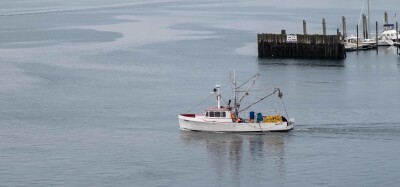The idea, I guess, is that we'll all sleep safer tonight knowing that Jorge Vargas is in jail.
Vargas, 59, of Miami, was found guilty last week of illegally possessing 267 lobsters (of which 246 were shorts), a commercial trap-puller, and sadly, no commercial license. He was sentenced to a year in jail and fined $28,680. When he gets out he's looking at five years' probation, and he's been banned from fishing the waters of the Florida Keys.
Illegal possession of 267 spiny lobsters and lack of a commercial license brought Jorge Vargas a one-year jail sentence and a $28,680 fine. YouTube screen shotHis bond in last fall's case was set at $1.4 million – a little steep, in my view, no doubt reflecting his failure to appear in a 2011 case – prompting the headline, "Undersize lobster tails lead to oversize bond for jailed Miami man."
No doubt many of you believe that Vargas got no more than he deserved for what amounts to thievery, reckless disregard for the health of the resource, and flouting rules you and I comply with as a matter of good citizenship. At the risk of provoking righteous indignation, I disagree on the jail time.
I'll grant you it's a close call. There is no question that as poachers go, Vargas is something of an overachiever. According to the Miami Herald, during the three years prior to this episode Vargas was cited on two other occasions, for possession of wrung lobster tails (332, of which 274 were shorts) and possession of stone crabs out of season.
But he's also a small-time operator, and as far as I know, there was nothing violent about what he did (unless you are a spiny lobster). Prison time is a harsh sanction – and an expensive one, from the perspective of the taxpayers. Better to have Vargas on the outside, where in theory he can work toward paying down his fine, and off the water, where I am confident he'll remain with five years in jail hanging over his head.
Some of you will recall the case of another Florida fisherman, John L. Yates, who in 2012 was sentenced to 30 days in prison for possession of undersized grouper, only to have the U.S. Supreme Court toss out the sentence two months ago.
The Vargas and Yates cases are dissimilar in several ways. Yates was a licensed commercial fisherman, as opposed to a rogue operator, and the issue was the composition of his catch, not the very fact of it. Moreover, the high court found that a federal law against the destruction of evidence – the grouper were tossed overboard – should not have been applied to Yates.
But in their ruling, the justices raised the issue of proportionality in sentencing, and that can be applied to Vargas' case. Prison is for people who don't belong on the street. Vargas doesn't belong on the water.







